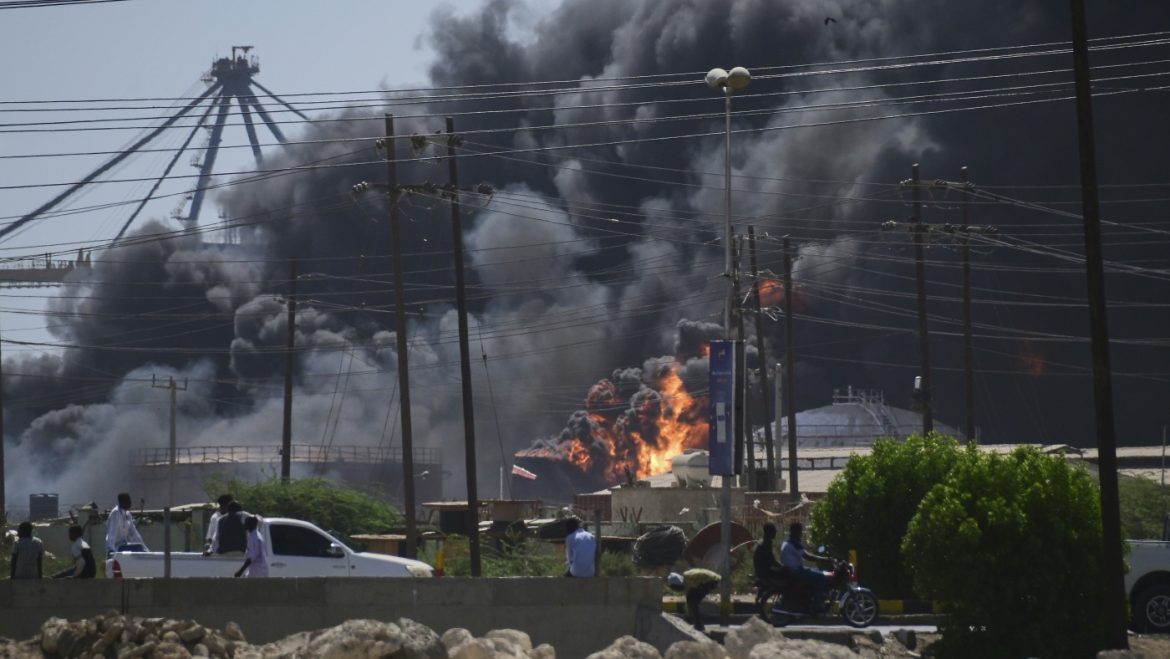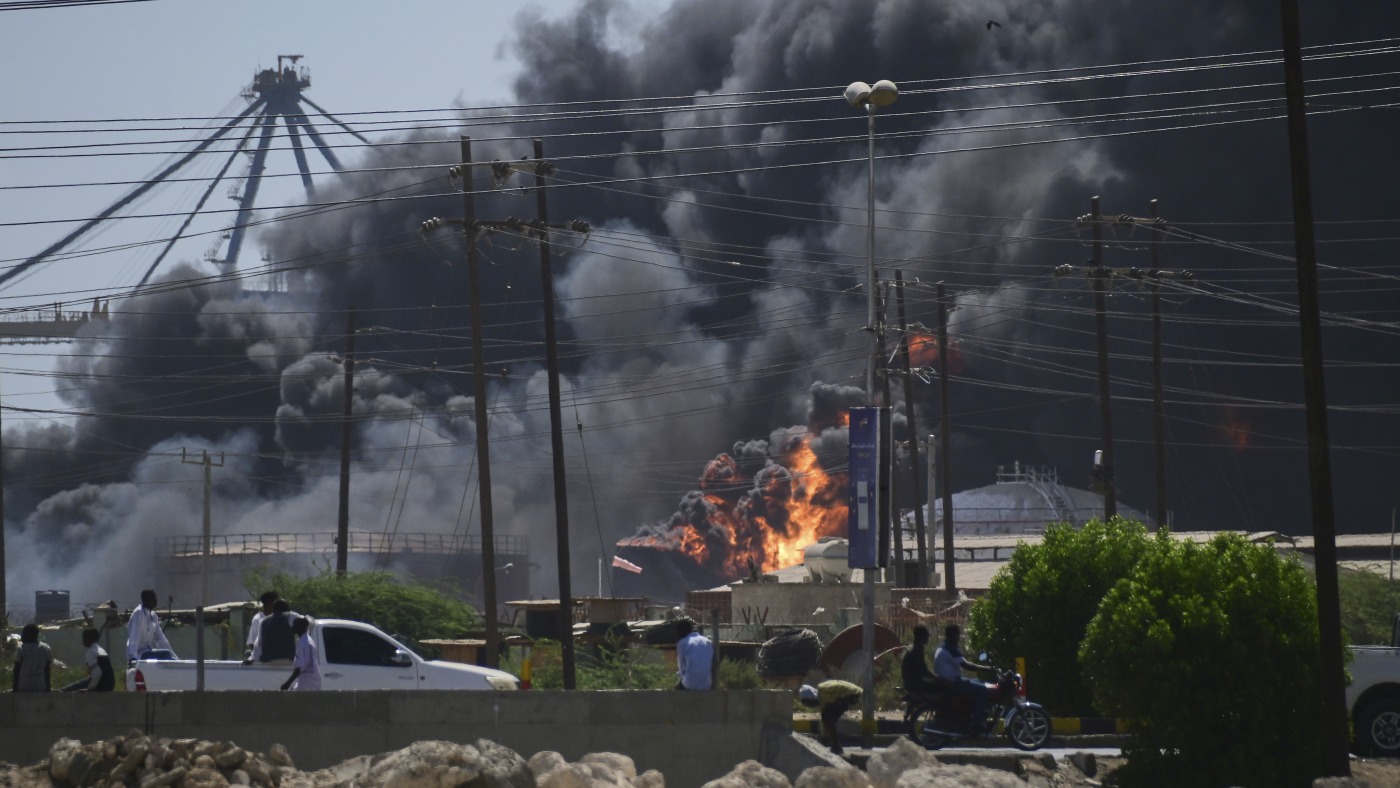Port Sudan: From Safe Haven to War Zone
A Shift in the Civil War Landscape
Port Sudan, a city that had remained relatively untouched by the brutal civil war ravaging Sudan, has suddenly found itself at the epicenter of conflict. For over two years, this Red Sea city served as a sanctuary for those fleeing the violence, a testament to its resilience and stability. However, a series of drone strikes launched by the paramilitary Rapid Support Forces (RSF) have shattered this peace, marking a dramatic escalation in the ongoing conflict.
The First Attacks
The first attacks on Port Sudan occurred on Sunday, with the RSF targeting a military airbase within the city’s international airport. This was a significant development, as it was the first time the city had come under direct assault since the war began. The strikes, which continued for three consecutive days, targeted various locations, including a fuel depot and a terminal at the airport. The attacks have not only raised tensions but also highlighted the evolving strategies of the RSF, who have increasingly employed drone warfare.
The Strategic Importance of Port Sudan
Port Sudan’s strategic importance cannot be overstated. It is the lifeblood of Sudan’s economy, handling approximately 80% of the country’s trade. Moreover, it serves as a crucial lifeline for humanitarian aid, making it a vital hub for aid missions and UN agencies. The attacks on Port Sudan, therefore, have far-reaching implications, not just for the city itself, but for the entire country.
The Humanitarian Impact
The conflict has already displaced over 15 million people, a staggering figure that represents one in every three of Sudan’s pre-war population. The attacks on Port Sudan add another layer of complexity to the humanitarian crisis, as hundreds of thousands of displaced people have sought refuge in the city. The explosions and fires resulting from the drone strikes have caused further displacement and suffering, exacerbating an already dire situation.
The Political and Military Dimensions
The attacks on Port Sudan are not just a military escalation but also a political statement. The city serves as the de facto capital of Sudan’s military-aligned government, making it a symbolic target for the RSF. The use of drones in these attacks also signifies a shift in the RSF’s tactics, reflecting their growing capability and willingness to engage in high-stakes operations.
The Economic Consequences
The economic impact of these attacks is profound. Port Sudan is a critical hub for trade and investment, and the disruption caused by the conflict could have long-lasting effects on Sudan’s economy. The attacks have already led to calls for the government to cease hostilities and uphold its responsibility to protect, underscoring the urgent need for a resolution to the conflict.
The Way Forward
As the conflict in Sudan continues to evolve, the situation in Port Sudan serves as a stark reminder of the human cost of war. The city’s transformation from a safe haven to a war zone is a tragic testament to the escalating violence and the urgent need for a peaceful resolution. The international community must continue to support efforts to end the conflict and provide aid to those affected.
Conclusion
A Call for Peace and Stability
The attacks on Port Sudan mark a significant turning point in Sudan’s civil war. The city’s strategic importance, coupled with its role as a safe haven for the displaced, makes the situation all the more urgent. As the conflict continues to escalate, it is crucial that all parties involved prioritize peace and stability. The international community must play a pivotal role in facilitating dialogue and providing humanitarian aid. The future of Port Sudan, and indeed the entire country, depends on it.


